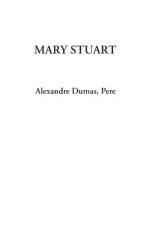The Queen of Scotland began to speak in these terms:
“I do not admit that any one of you here assembled is my peer or my judge to examine me upon any charge. Thus what I do, and now tell you, is of my own free will, taking God to witness that I am innocent and pure in conscience of the accusations and slanders of which they wish to accuse me. For I am a free princess and born a queen, obedient to no one, save to God, to whom alone I must give an account of my actions. This is why I protest yet again that my appearance before you be not prejudicial either to me, or to the kings, princes and potentates, my allies, nor to my son, and I require that my protest be registered, and I demand the record of it.”
Then the chancellor, who was one of the commissioners, replied in his turn, and protested against the protestation; then he ordered that there should be read over to the Queen of Scotland the commission in virtue of which they were proceeding—a commission founded on the statutes and law of the kingdom.
But to this Mary Stuart made answer that she again protested; that the said statutes and laws were without force against her, because these statutes and laws are not made for persons of her condition.
To this the chancellor replied that the commission intended to proceed against her, even if she refused to answer, and declared that the trial should proceed; for she was doubly subject to indictment, the conspirators having not only plotted in her favour, but also with her consent: to which the said Queen of Scotland responded that she had never even thought of it.
Upon this, the letters it was alleged she had written to Babington and his answers were read to her.
Mary Stuart then affirmed that she had never seen Babington, that she had never had any conference with him, had never in her life received a single letter from him, and that she defied anyone in the world to maintain that she had ever done anything to the prejudice of the said Queen of England; that besides, strictly guarded as she was, away from all news, withdrawn from and deprived of those nearest her, surrounded with enemies, deprived finally of all advice, she had been unable to participate in or to consent to the practices of which she was accused; that there are, besides, many persons who wrote to her what she had no knowledge of, and that she had received a number of letters without knowing whence they came to her.
Then Babington’s confession was read to her; but she replied that she did not know what was meant; that besides, if Babington and his accomplices had said such things, they were base men, false and liars.
“Besides,” added she, “show me my handwriting and my signature, since you say that I wrote to Babington, and not copies counterfeited like these which you have filled at your leisure with the falsehoods it has pleased you to insert.”




